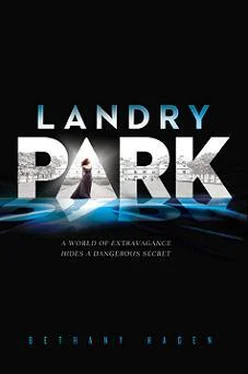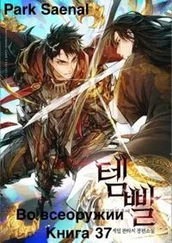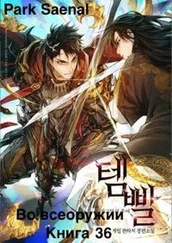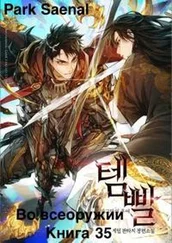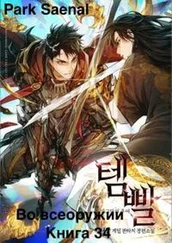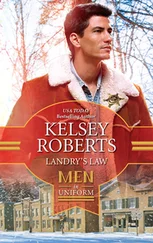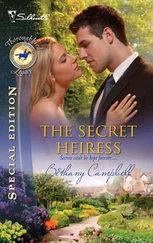“Will you come with me to tell my father, then?” I asked, only half joking.
Ewan laughed a deep laugh that could fill a tavern. “Wouldn’t that be a sight?”
My bag was full. I stood—too quickly—and felt faint.
“Steady now,” Ewan said. “You should probably eat something first.”
Jamie looked around the room. “I’ll see if I can find something,” he said, and hurried out.
Ewan pulled a wrapped package out of his pocket and handed it to me.
“I can’t take that.”
“It’s not radioactive, I promise. Just got it from the ration station before the raid.”
“No, not that. I meant I can’t take it because it’s yours. Your food.” I stopped. It seemed rude to imply directly to a Rootless that I knew they were starving. Especially when he had seen where I lived.
He held it out to me insistently. “Eat it. Your blood sugar is low, and I doubt the gentleman will find anything of better quality here. It’s all gelatin desserts and oatmeal.”
“Are you sure?” I did feel faint tingling waves at the base of my skull. My voice sounded further and further away.
“Just take it already.”
I took the package and opened the plastic wrapping. Inside was a bar of compressed fruit, meat, and fat.
“Pemmican,” Ewan said, and leaned back. “It’s softer if you stew it. But somehow I think the doctor might get a little cranky if we use his Bunsen burner to make a hot meal.”
I chewed and chewed, trying to break the bar into smaller pieces. “Thank you,” I said through a mouth full of crumbled pemmican.
“If you’re really nice to me, I’ll let you have some sawdust bread and dehydrated potatoes, too.”
“Thank you. I’m sorry,” I said awkwardly, not exactly sure what I wanted to convey. Regret? Pity? General distaste for their deplorable food?
“For what? Your family enslaving mine?”
Enslaving . The word felt like a strike or a slap—an indictment. “Don’t you think enslaving is a little strong? This isn’t the Antebellum South.”
Ewan leaned forward. “History repeats itself, princess. And you know what? My life feels an awful lot like slavery to me.”
“Don’t be unfair,” Jamie said, walking into the room with a tray of anemic-looking broth and prepackaged crackers. “Society now is completely different than it was during the Civil War. Race is not a factor any longer; the Wilders and Osbournes are African American, the Lawrences are Hispanic, the Thorpes came from India, and they are all gentry and have been since the Last War. Your ancestors fought against the Uprisen in that war and that’s why you now serve the gentry. This is about class, not race.”
“Are you justifying our bondage with the fact that we happen to be different colors? Just because this isn’t exactly like what happened back then doesn’t mean that it isn’t wrong. We toil, we sicken, and we die while you all play dress-up in your fancy houses, and we have no choice. If that’s not close enough to slavery for you, then you need to return to your history books.”
I didn’t respond. Ewan had a way of being direct and challenging without being aggressive. A few moments of quiet pervaded the room as Ewan’s blood filled the bag, and as I pondered thin soup and finished the pemmican instead.
An idea occurred to me as my steadiness returned, and I decided to seize the thought and act on it, like Ewan had encouraged me to do earlier.
“Ewan,” I said, “do you know much about Cara Westoff’s attack?”
A storm clouded his face. “I could hardly not know about it, given that I just had several police officers screaming her name in my face.”
“I think she’s lying,” I rushed. “I’m not sure why she refuses to say who really attacked her, but I don’t think it was a Rootless, and I want to prove it. I just don’t know where to start.”
“So you’re asking me?” His voice was as clouded as his face.
“I’m sorry. I thought maybe you might have heard something.”
“All I can say is that it was certainly not a Rootless who hurt her.” He leaned back and looked up at the ceiling. “I’ve kept a close eye on Cara Westoff and the issue of her assault, and I can guarantee that no one from my camp was involved.”
“How can you be sure?”
“I’m sure.”
I didn’t know if I should trust a man I barely knew—and a Rootless man at that—but Ewan was so open and approachable. And he’d shared his food with me, when he had impossibly little to share.
I decided to believe him.
Mother was screaming.
We were in the car, coming from a dinner at the Osbourne estate, and I was too preoccupied to notice when she got out of the car. I started in my seat when she began shrieking in terror.
Father put a hand on her shoulder to steady her when she swayed, but as soon as he saw the front of the house, he gestured for the driver to come support her. After easing her into the arms of the servant, he walked forward, a dark silhouette against the front of the house. I got out of the car last, and therefore saw it last, the dripping red paint scarring the light gray stone of our house.
WE ARE RISING.
The words were scrawled across the front, stretching over two windows and the antique, hand-carved double doors of the entrance. In my mind, I could think of only one “we,” one group of people who hoped for upward movement and flight from pain. One group that would so daringly play on the term Uprisen, the name that all the gentry guarded with pride. One group that had been attacked yesterday, that had watched their women and children beaten for no reason other than a reckless lie.
“How could they?” Mother whimpered, now kneeling on the ground. I knelt beside her to comfort her, but to my surprise, she was the one who drew me in her arms. “Our lovely house.”
It was lovely, in fact. Jacob Landry had selected the stone himself from a quarry in England. It looked dove gray in the daylight—almost like marble—but at night, the stone took on a distinguished silver color.
Like our eyes, our Landry eyes.
And at that moment, I felt a stab of anger at the Rootless. Yes, they’d been attacked, and yes, my father was partially responsible, but… our house? My house? Historic and strong and graceful, and now scarred with this angry graffiti. The paint was as red as the lights on the nuclear charges, and for a moment, I had a terrible vision of the house bathed in red lights, poisoned with radiation, uninhabitable and empty.
And then I realized why my father truly feared them. In forcing them into nuclear slavery, the gentry had also handed the Rootless a weapon.
“I will have to call the other landowners, and the Uprisen, too,” Father said, moving toward the door. “We must find whoever did this, and after we do, we need to remind these criminals who takes care of them. Their livelihood is dependent on our charity, and if they lose that, they will starve. They must respect us, and if they will not, then we will force respect on them.”
God help them, I thought, at the same time as I wondered How could they? To my beautiful house?
Father stalked off, and I watched as the driver helped Mother into the house. I wandered inside, feeling in a daze.
* * *
The next night, the spicy and expensive smell of opium smoke curled from under the study doors, where Father held court with the other landowners in the city, no doubt discussing the vandalism to our house. It had been on every wall screen, the subject of every tablet call and tea-party conversation that day; dinner had been a fierce affair, full of frightened speculation and loud polemic. After my father and his friends cloistered themselves in the study, the rest of our dinner party had quickly devolved, with everyone eager for a break in the tension, and conversation bubbled on the humid patio as the remainder of the guests flirted and drank their way through our family’s supply of plum wine and whiskey.
Читать дальше
